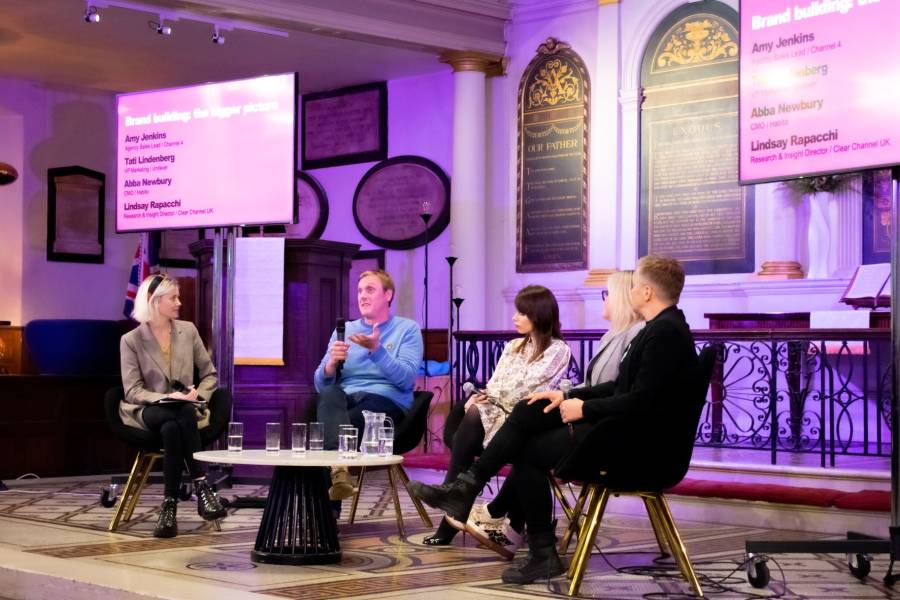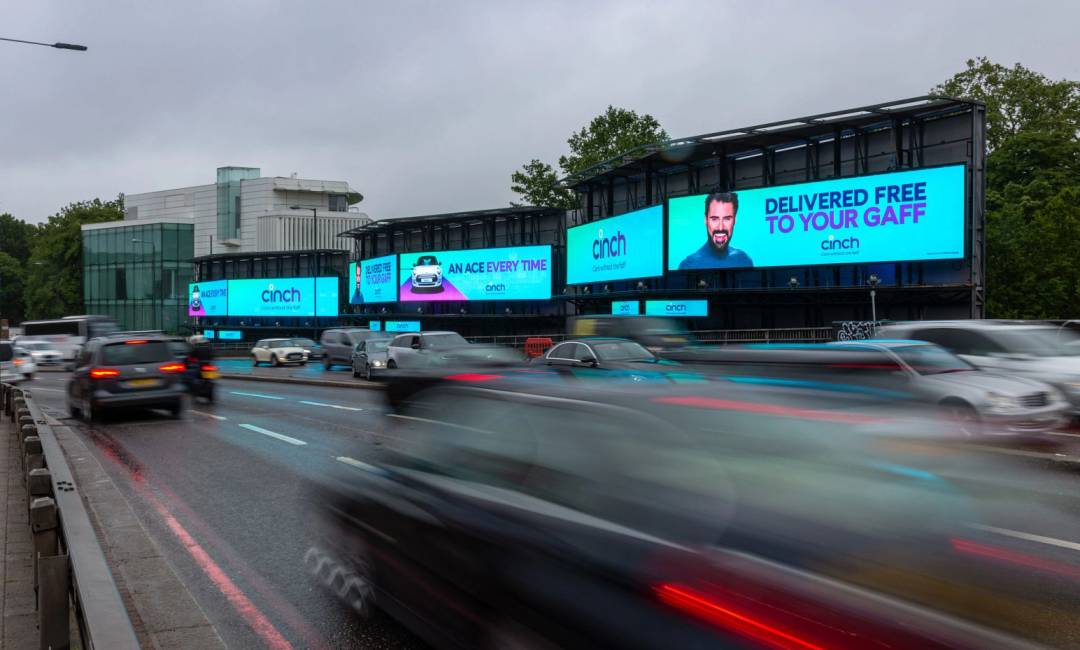
Marketers from Unilever, Channel 4 and Habito joined us at the recent Contagious Live event to discuss the perks and pitfalls of brand building.
Written by the Contagious team
Keep the faith, show up consistently…and buy as much outdoor media as you can. Those were the take-outs from our panel on brand building at Contagious Live on 28 April 2022.
Contagious senior strategist Becca Peel hosted the panel and began by asking our Research and Insight Director, Lindsay Rapacchi, why brand building was such a germane topic for discussion.

Rapacchi answered that, while the tools were still available, the rise of ecommerce had skewed some of the industry’s attitude towards brand building.
"There’s a sense that as we shop online we become far more rational in our decision making and we don’t need branding and emotional heuristics, but I would say completely the opposite to that,’ said Rapacchi. ‘Rational decisions are very dangerous. If your brand isn’t the best on paper then you’re not necessarily going to be chosen, so you need those mental structures to predispose people to your brand."
On the question of how brand building had evolved at Unilever, Tati Lindenberg, the VP of marketing for Dirt Is Good (laundry detergent) highlighted three things.
The first was purpose, with Lindenberg noting that the company had "years of data" proving that purpose-led ads’ positive effect on brand building.
"Another important thing we realised was that nowadays it’s so important to bring in the point about the environment and sustainability," said Lindenberg, citing Unilever’s Sustainable Living Plan, as well as its promise to make all of its laundry detergent formulations more environmentally friendly.
"The third one," said Lindenberg, "is that we can build brands across different channels. A laundry detergent will always rely on more traditional channels, but the pandemic really forced us to be present in different ways and in different channels, and to find the best combinations, even though we are, I have to say, a low-interest category."
Habito CMO Abba Newbery empathised with Lindeberg’s situation, remarking that laundry detergent was positively fascinating compared with mortgages.
In a way, mused Newbery, the dire experiences that most people associate with mortgage lending helps make the case for brand building at Habito because rational sales messages are even less appealing. But being part of a sector that is largely funded by venture capital presents its own challenges.
"VCs hate marketing and they hate CMOs," said Newberry, "and they know about 40-50% of what they’re going to give to a business will go on marketing, but they’d prefer you to voucher-hack your way to growth.
Part of the reason they hate it is that there is no formula for creativity like there is in other parts of the business. And also they’re terrified because research doesn’t tell you if it’s going to work. You can put [an ad] into a focus group and people will say that they love it, and it still doesn’t work. What VCs don’t like is that psychology isn’t simple. What people say and what they do are fundamentally different things."
VCs aren’t the only ones that need convincing about brand building sometimes. Amy Jenkins, Channel 4’s agency sales lead, explained that while linear media does ‘really well’ in terms of performance’ and generates more profitability than almost any other medium, it doesn’t get enough press for that ability. But, she added, the pandemic had provided brands and marketers with a valuable reminder.
"Brands who, the minute the pandemic hit, cut their marketing budgets and really stopped investing in television were coming back to us after lockdown finished in a flat panic," said Jenkins. "And now we’re facing a situation where there are global shortages, where there are challenges for economies, those brands are doubling down on their investment because they saw what happened during lockdown."
Wrapping up, Lindenberg’s advice for marketers interested in brand building was to show up consistently. "We have enough data showing that brands who keep building themselves during uncertain times tend to come out much stronger," she said.
Jenkins, with reference to Channel 4’s focus on giving a platform to unheard voices, warned against trying to be all things to all people. "Focus on who you are and what you want to be as a brand," she said.
And Newbery told the audience to "keep the faith" in search of the perfect idea, client or brief, because "creativity is a relentless pursuit".
Meanwhile, Rapacchi’s comically blunt advice, "buy as much Out of Home as possible", was received in the spirit in which it was offered and provided an apt reminder that there’s nothing wrong with a hard sell, every now and then.
SHARE POST
PRESS ENQUIRIES




